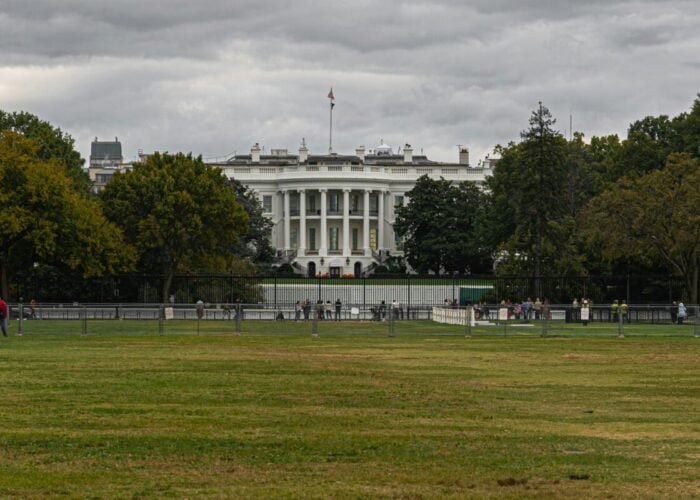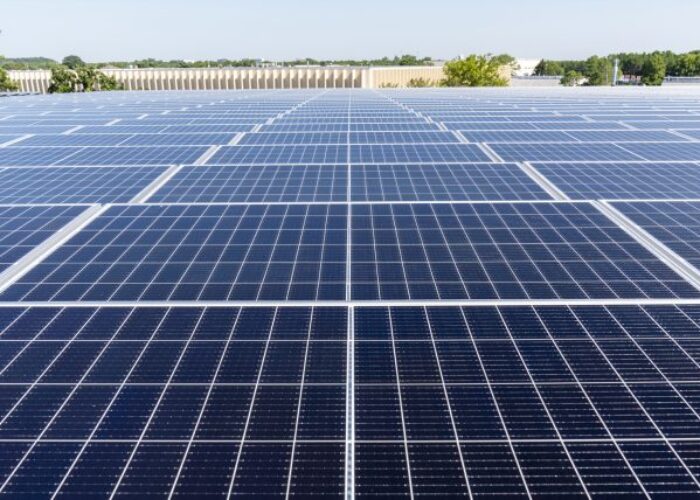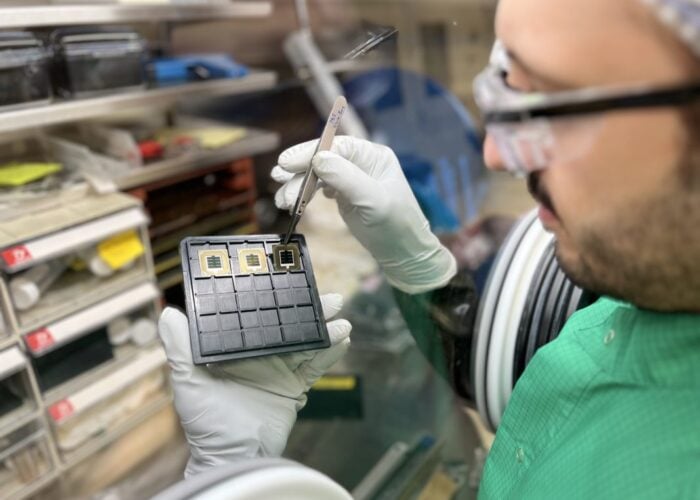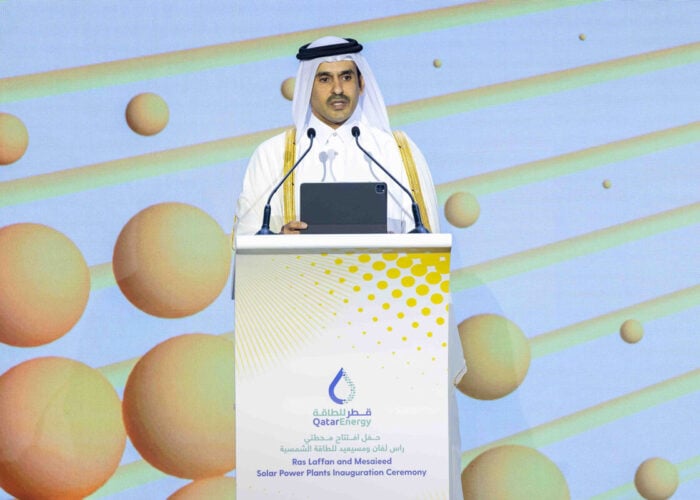
US Energy Secretary Jennifer Granholm is extending an olive branch to global policy makers to advance the country’s own renewable energy technology and meet President Biden’s climate targets.
Granholm, speaking at the 2021 EU-US Future Forum hosted by the Atlantic Council last week (7 May), said that the Department of Energy (DOE) wants to enter into a dialogue with European nations and reignite collaborative work on advancing renewable energy technologies such as solar, offshore wind, green hydrogen and energy storage.
Unlock unlimited access for 12 whole months of distinctive global analysis
Photovoltaics International is now included.
- Regular insight and analysis of the industry’s biggest developments
- In-depth interviews with the industry’s leading figures
- Unlimited digital access to the PV Tech Power journal catalogue
- Unlimited digital access to the Photovoltaics International journal catalogue
- Access to more than 1,000 technical papers
- Discounts on Solar Media’s portfolio of events, in-person and virtual
“We recognise that the past four years where we were out of this conversation leads us to enter this with humility,” she said. “And we know that so many of our allies have been working continuously on this, and we want to learn from you as well as partner with you to solve these big problems.”
Granholm’s words follow six initiatives the DOE has rolled out in recent months to meet Biden’s goal of decarbonising the American electricity grid by 2035 and simultaneously support similar global efforts. There are mounting fears that countries committing to net zero carbon emissions aren’t moving fast enough to prevent drastic climate change. The World Economic Forum released a report in April that argued just 10% of countries have shown “steady and consistent” progress in their energy transition plans.
Last month, the DOE said it is planning to host the co-located 13th Annual Clean Energy Ministerial and the 7th Annual Mission Innovation Ministerial in 2022. It has launched a partnership with India aimed at speeding up clean energy deployment, scaling innovative clean technologies, and mobilising finance. The DOE has also, alongside the UK, joined a new public-private consortium to cut power sector emissions by at least 50% over 2020 levels in the next 10 years called Global Power System Transformation (G-PST) Consortium; established a forum with oil and gas companies and energy ministries in Canada, Norway, Qatar and Saudi Arabia; and joined an initiative with the European Commission, among others, to help energy workers in fossil fuel sectors adjust to the changing power systems worldwide. The announcements were made as part of President Biden’s Leaders Summit on Climate, which European Commissioner for Energy Kadri Simson called “a turning point for the US and also for global commitment.”
Granholm, speaking with Simson at the virtual workshop last week, said that both ministries face “common challenges”, such as how to establish a hydrogen market that as yet “doesn’t exist”, and creating global standards in policy and deployment. “In this regard, I can only echo…the policy of necessary cooperation ahead of us.”
Kadri Simson said she is “a true believer in a strong transatlantic relationship, so I’m convinced that by working together we will drive the change needed in the energy sector on both sides of Atlantic and all over the globe.”
A “just transition”
Innovation and research and development (R&D), not to mention the more ambitious aim of winning over the fossil fuel sectors, were areas of keen interest to both energy chiefs. They’re working together to revive the US-EU Energy Council, a forum on US- EU energy priorities set up in 2009 that aims to promote transparent, open and secure global energy markets, to place more onus on clean energy technologies. The Council met just once under former President Donald Trump’s administration, having previously done so almost annually since its foundation.
Granholm said she and Simson will co-chair the council, which the ministries “can and should” use to discuss areas of concern such as a just energy transition “both for our fossil fuel communities within the US and Europe, but also for developing countries as they navigate the energy transition as well.”
Both the US and EU have launched initiatives aimed at retraining and providing new opportunities for fossil fuel workers in recent months. The DOE last month announced US$109 million will be invested in projects to support job creation in communities impacted by changes in the energy economy, while the EU launched a Just Transition Platform last July to provide a database for information and support for communities that may be put at economic risk due to the phasing out of fossil fuel power plants.
Simson pointed out that policymakers “have to take care that those jobs will be created in the regions where right now people get their incomes” from carbon-intensive industries such as mining. However, she added that the clean energy transition has “a strong potential to create jobs and to boost growth.”
“According to our estimates, every billion euro of investment in renewably hydrogen, for example, will create ten thousand jobs around the supply chain. So, similarly, solar power could create four hundred thousand new direct and indirect jobs around the entire industrial value chain during this stage.” Simson said the European Commission hopes to work with the International Energy Agency (IEA) to support regions that will be most affected by the changing energy landscape.
Innovation
Additionally, sharing research and new technology innovations will be a key talking point in the council’s future. Both the DOE and European Commission have signalled a desire to build out robust domestic solar manufacturing bases. The DOE has earmarked US$128 million for research and development projects that will create new solar technologies from high-performance modules to trackers and other components that can extend the life of a plant from 30 years to 50. The EC this month included a commitment to “re-ignite” Europe’s solar manufacturing sector within its updated industrial strategy.
The EU-US Council, according to Granholm and Simson, may provide an ideal forum for comparing notes on innovative technologies across the renewables sector, including offshore wind and energy storage.
“Like the US, the EU is also pursuing innovation, obviously, and deployment in the energy storage space,” Granholm said, “which makes this another opportunity for possible engagement and cooperation under the US-EU Energy Council.”
Simson said they will aim to “relaunch the EU-US Energy Council this year, as soon as possible. We want to make it a dynamic setting where business will be able to share their experience and network and develop new projects.”
The European Energy chief also said the Commission had approached the US government with a proposal to launch a Clean Tech Alliance, which would be used to create “lead markets and cooperate on clean technologies like renewables and also clean hydrogen.” The alliance would be used to develop joint research programs and work closely to establish an international hydrogen market, which will “pave the way for investments to the benefit of green companies on both sides of Atlantic.”







